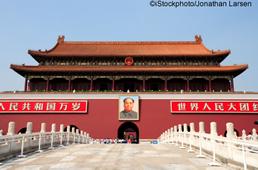
Grace Vineyard CEO and President Judy Leissner says the winery is focusing on the domestic market at present, but is also trying to get international recognition. “We currently send the wine over to a lot of wine critics and there are a lot of people in the wine industry that we regularly send reports to, about what we’re doing now and some of the new projects,” she told INSEAD Knowledge. “So those give us a lot of coverage in the media. Currently we don’t sell in the US because we don’t have enough wine. It’s better to focus on China because we are quite small. So if we spread it out, our position in China would be even smaller. It wouldn’t be a very good position to be in.”
“People buy because of the brand, the quality, slowly and surely,” Leissner says. “We positioned ourselves to focus on the upper higher-end range but (in terms of) price we are not a luxury product, we target the middle to upper class and ensure the quality is value for money and exceeds the value. So if I have my wine compared to wine from other countries at that price point, I think we are very, very competitive.”
In the ‘China Rising’ session at the INSEAD Leadership Summit in Asia, Leissner spoke about the opportunities in China but also touched on ethical issues. “China as a whole is growing in a very positive direction. There are issues here and there. If you do want to work in China, my advice would be you have to have a sense of humour. You have to be able to laugh at things,” she said.
During the session, she recounted the story of a tractor that had been stolen. A farmer had taken it, but when confronted, he broke down in tears, saying he hadn’t stolen it, he’d only ‘taken’ it. He said he’d even had to contribute labour himself. “That’s how they look at things. It’s quite interesting. It was shocking to me,” she added.
Leissner also spoke about the challenges of dealing with the Chinese authorities, who have been considering building a chemical plant “right next to the winery.”
“We deal with 35 government departments regularly, and multiply that by five times – village, county, city, province and national. Each time they come with between five and 25 people. I have a team purely just to entertain these people.”
The family-owned winery, based in Shanxi province, south of Beijing, is part of a larger portfolio of businesses, which include a water treatment project, a department store and even a funeral home.
While highlighting Grace’s wines, the FT article said the climate in eastern China is ‘a bit too damp’ while western China is ‘a bit too cold for viticulture.’
Leissner says she doesn’t agree that the climate might not be right. “When people ask if Shanxi (in northern China) is the right place, the question is wrong, it’s not the climate, the soil alone, it’s also what you grow, the grapes as well. We believe the provinces around the Yellow River are suitable and that’s why we also believe the more Western part is better than the coastal areas,” she says. That’s why, she adds, the company is expanding into provinces such as Gangsu. “Generally we’re very optimistic which is why we’re building a second winery – optimistic in the sense that incomes are getting better.”
She says mainland Chinese are also becoming more health-conscious. Previously people used to drink hard liquor in banquets, she says, but now many are choosing to drink red wine.
As for Grace Vineyard’s prospects, Leissner says she’d be very happy for her wines to be on offer in top restaurants in New York, London and elsewhere. “I think that would be one of the ultimate goals. But for us, the ultimate passion is to find where in China and what style wine to make. Currently people say it’s a Bordeaux wine. Of course it’s a compliment but ultimately, after 50 to 100 years, if people think you’re still a Bordeaux wine then we’ve failed. I want people to try it and say ‘this is a fantastic Chinese wine.’
-
View Comments
-
Leave a Comment




No comments yet.